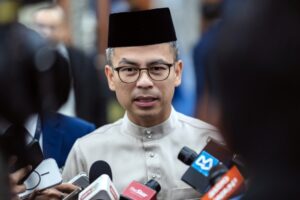KUALA LUMPUR, Sept 5 — Sixty per cent of Malaysian respondents in an Ipsos survey consider inequality an important problem, higher than the global average. Yet most still believe that hard work and merit pay off, with only a fifth viewing structural barriers as an obstacle to equality.
The survey on Malaysians’ attitudes towards inequality found that six in ten see it as one of the most pressing national issues, while nearly half believe more must be done to promote equality, echoing the global call for stronger action.
“Across 31 countries, half of people identify inequality as one of the most important problems facing their society,” said Arun Menon, managing director of Ipsos Malaysia.
“Malaysia is no exception, with six in 10 identifying it as an important national issue, and almost half saying more must be done to address it, in line with global expectations for stronger action.”
Malaysians, however, are generally more optimistic than their neighbours. Concerns about inequality are higher in Indonesia and Thailand, where 84 per cent and 71 per cent of respondents, respectively, see inequity as a major issue.
On the role of merit, the survey found that most Malaysians remain optimistic that hard work pays off, while only a fifth believe success is determined mostly by factors beyond their control.
This view is more common among Millennials and Gen X, who are likelier to feel structural barriers limit opportunities. In contrast, Gen Z and Baby Boomers are more inclined to believe in meritocracy.
Many scholars question meritocracy, noting it often fails to account for systemic inequities that make competition uneven — for example, students from wealthier families tend to succeed at higher rates than those from low- or lower-middle-income households.
Surprisingly, Singapore — where meritocracy is widely seen as central to public and developmental policy — shows greater scepticism.
Nearly a third of Singaporeans feel structural barriers dictate socio-economic success, compared with just one in four Malaysians.
The disabled face the most unfair treatment
Malaysians generally agree that people with disabilities experience the most unequal treatment.
Younger generations, however, place more emphasis on mental health and neurodivergence, while older groups focus on senior citizens and women.
“Disabilities are perceived as the most significant area of unequal treatment in Malaysia, at levels higher than the global average,” Ipsos said.
“Malaysians also express strong concern about the unfair treatment of people with mental health conditions and those who are neurodivergent, highlighting areas where inclusion policies are most needed.”
Neurodivergent refers to individuals whose brains process, learn, or behave differently from societal norms.
Who should solve inequality?
When asked who should lead efforts to address inequality, two-thirds of Malaysians said they expect the government to take the lead, followed by the media, then employers and educators.
Younger Malaysians call for broader responsibility, including teachers, parents, and advocacy groups, while older respondents focus mainly on government action.
“This strong expectation of government signals a clear mandate for ministries such as the Ministry of Women, Family and Community Development, alongside NGOs and advocacy groups on disability and mental health, to step up and drive progress,” Ipsos said.





